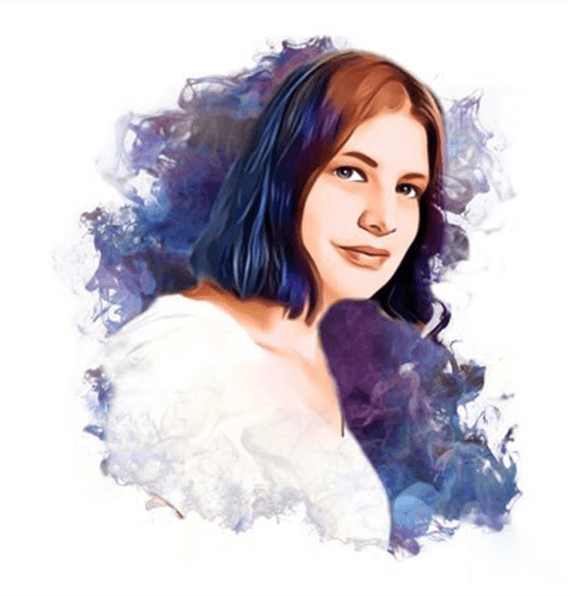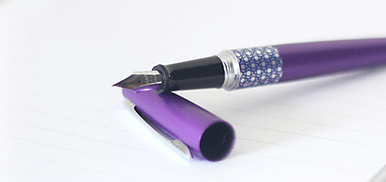About Gabrielle
Where are you from?
Originally, Sheffield, in England. I moved to Australia when I was five, grew up in Sydney, and then after I got married I lived in Yass (just north of Canberra) for a bit. Now I’m in the Lake Macquarie/Newcastle area.
Have you always wanted to be a writer?
Yes, on some level. I think before I learned to read I wanted to be a doctor, but once I got into books I never stopped. But even as a child I knew that it was “author and ____”, I’m not sure why. I doubt, at that age, I knew how little money was in it.
So what were the “and”s?
I’ve always loved animals and for a long time I wanted to be a vet. Then briefly a dairy farmer. But by the time I finished high school I just wanted to keep studying English and Philosophy. I ended up doing a teaching degree so I could be a high school English teacher, but I haven’t been in the classroom for a few years now. I’m a stay at home mum and PhD student and I do a bit of admin and copywriting work to pay the bills.
What is the first book that made you cry?
I honestly can’t remember because I would have been a kid at the time. But I think I cried in Bridge to Terabithia by Katherine Paterson? These days I find it hard not to well up when reading Koala Lou (by Mem Fox) to my own kids.
Do you think someone could be a writer if they don’t feel emotions strongly?
It depends on what they wanted to write. For me, characters are everything and I need to be able to empathise with them. But some books are more plot-driven, or funny, and I don’t think emotions necessarily have as big a role to play in, say, a cozy mystery.

Does a big ego help or hurt writers?
It’d probably help. I don’t know, I haven’t really got one.
What other authors are you friends with, and how do they help you become a better writer?
Ooh I love this question. I’m “internet friends” with a lot of writers – the Australian writing community is wonderfully supportive and social media has allowed us to connect and support each other with retweets, reviews, or just general words of encouragement. #loveOzYA has been a gamechanger for me. I’m also friends with some YA writers internationally – A. B. Rutledge, Laura Creedle, Marisa Urgo, E. L. Norry and Brenda Baker have all been critique partners of mine for a long time, and it’s a blessing to see their first drafts in all their messy glory and be reminded that it’s a process for all of us.
Did you ever consider writing under a pseudonym?
Uhhh no comment.
How many unpublished and half-finished books do you have?
Unpublished but complete: two. Half-finished but saved on the computer somewhere: five.
How did publishing your first book change your process of writing?
It paralysed me a bit, honestly. It’s become the comparison point for everything I write, and I have this added pressure/fear that it might have been a fluke and maybe nothing I write will be worthy of publishing again. I peaked at age 29 and it’s over now. Like I said, a bigger ego may have been a blessing.
How many hours a day do you write?
Not enough!
How do you select the names of your characters?
I’m a name nerd. I’ve got heaps of baby name books published in different eras (although I keep lending them to pregnant friends) and I scour the data from births, deaths and marriages, as well as the enrolment lists for different classes at schools. Some names are chosen for their meaning. Others are chosen because they are common to a particular age group or area. One or two are from friends or readers who I’ve promised to name a character after. I chose Dylan’s name because I didn’t like it, and I originally set out to write a character who I had no plans to like…
What’s the most difficult thing about writing characters from the opposite sex?
Avoiding stereotypes. I went to an all-girls’ school and although I had some male friends outside of school, it’s hard to put myself in a teen boy’s head and figure out what kinds of things he might think about or talk about. So then I’d ask men, “what did you do with your friends when you were a teenager” or “what did you talk about?” And then there’s that classic teen battle between what’s going on inside and what they’re saying/doing; the insecurity of it all and fear of being exposed. I’ve been told my characters are too self-aware.
What do you owe the real people upon whom you base your characters?
I never said they were based on real people… (but really, I owe them my gratitude for the different roles they’ve played in my life and perspectives they have given me)
Have you ever had reader’s block?
YES. And it sucks.

Do you want each book to stand on its own, or are you trying to build a body of work with connections between each book?
Series would probably sell better, but at the moment all my ideas are stand-alone.
What is the most unethical practice in the publishing industry?
Vanity publishers. I mean, there are advantages to self-publishing, and there are companies that you can pay to do various parts of the process for you, like cover design or typesetting, which is fine – you’re paying a skilled professional for a service. I did that with Impressum for Josie Robs a Bank. But then there are companies that charge you to publish the book, take creative control of the process, and then take some of your royalties too while holding the publishing rights so you can’t change it later. Not cool.
What was the best money you ever spent as a writer?
A membership to scribophile.com which is where my writer’s group are. I’ve done a Masters and am partway through a PhD and they have been great, but Scrib’s given me an ongoing community that grows and changes as I do.
What does literary success look like to you?
I have a wishlist of goals, some of which I may never reach. Things like a TV series or movie adaptation from one of my books, or a book of mine being studied in schools. The marker of “success” that I would LOVE to have would be earning enough from writing to be over the tax-free threshold one year. Yes, I’d like to have to pay tax!
Do you read your book reviews? How do you deal with bad or good ones?
I know I shouldn’t, but I read all of them. The good ones I share wherever I can. The bad ones, I look for valid criticisms and pitfalls to avoid with the next book. I try not to let reviews – good or bad – dictate how I feel about my work though. I have been the reader who hated a book, writing my honest thoughts for the sake of other potential readers, and worrying about offending an author who worked hard on it. But reviews aren’t for authors, they’re for readers.
Do you hide any secrets in your books that only a few people will find?
I have a manuscript at the moment that is full of in-jokes that only my sister will pick up on.
What is the most difficult part of your artistic process?
Persistence. I am a terrible procrastinator and it takes me far longer to finish things than I would like.